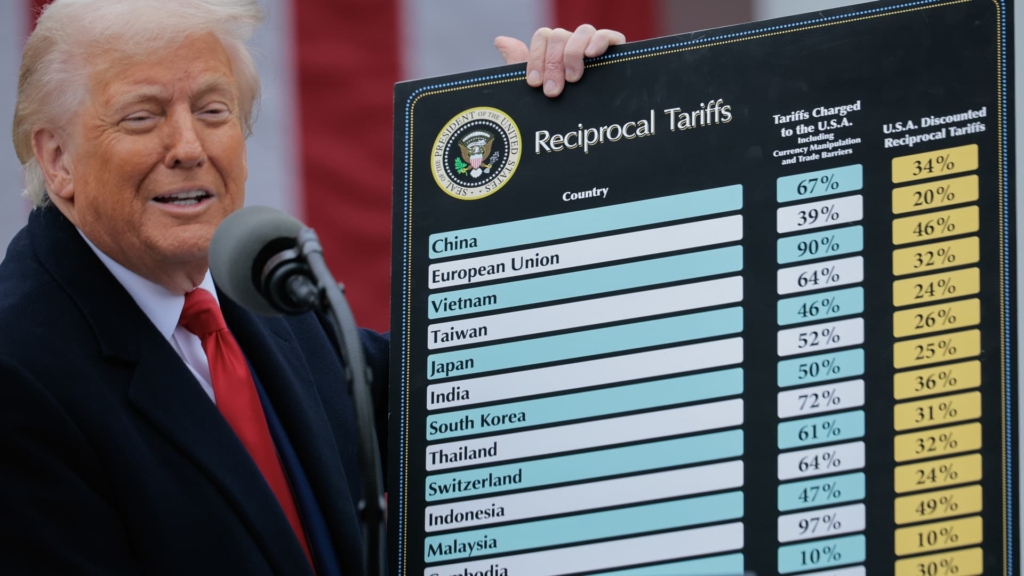The Trump administration is poised to request an immediate stay from the U.S. Supreme Court regarding a federal ruling that has blocked several of President Donald Trump’s tariffs. This appeal could be made as early as Friday.
In a filing made on Thursday morning in the U.S. Court of Appeals for the Federal Circuit, the administration indicated it would seek “emergency relief” from the Supreme Court to address what it describes as “irreparable national-security and economic harms” arising from the ruling.
However, the administration stated that it would pursue this course only if the federal appeals court fails to grant a temporary stay on the tariff ruling in a timely manner.
This announcement follows a strong backlash from Trump’s top aides against the three judges of the U.S. Court of International Trade, who rejected his “reciprocal” tariffs in a decision that significantly impacts his trade policies.
Simultaneously, while seeking relief from higher courts, the administration has urged the trade court judges to suspend any enforcement of their ruling during the appeal process.
White House Deputy Chief of Staff Stephen Miller criticized the ruling on social media, characterizing the situation as “judicial tyranny,” and reiterated his previous claim of a “judicial coup” aimed at undermining the administration.
Top trade advisor Peter Navarro, appearing on Bloomberg TV, described the court as “globalist” and “pro-importer,” arguing that it displayed bias against the administration’s tariff strategies.
Jason Miller, another senior advisor to Trump, expressed concerns during a Finance Newso Business interview about “unelected judges” imposing their opinions on trade and economic policy.
The ruling in question was issued by Judges Jane Restani, Timothy Reif, and Gary Katzmann, who were appointed to the federal bench by Presidents Ronald Reagan, Trump, and Barack Obama, respectively. This decision invalidated numerous country-specific tariffs that Trump had enacted earlier in the year under the International Emergency Economic Powers Act.
The judges concluded that the law does not grant presidents “unbounded authority,” leading to a permanent nationwide injunction against the retaliatory tariffs implemented in early April as part of Trump’s extensive “liberation day” strategy aimed at overhauling international trade.
This ruling also prevents the administration from making any future changes to the tariffs involved. The court has granted the administration a period of 10 days to comply with its order.
Following the ruling, the Trump administration filed a notice of appeal immediately.
Trump and other defendants in the case have requested that the trade court delay enforcement of its ruling while the appeal is in process. Department of Justice attorney Sosun Bae emphasized the need for this stay to protect national security and the President’s delicate diplomatic negotiations.
Bae’s request incorporated statements from several prominent officials, including Secretary of State Marco Rubio, U.S. Trade Representative Jamieson Greer, Commerce Secretary Howard Lutnick, and Treasury Secretary Scott Bessent, who collectively warned that the ruling could jeopardize a preliminary trade agreement with China and create uncertainty in future negotiations.
If the trade court’s decision stands after appeals, it could severely hinder Trump’s economic agenda, which heavily relies on tariffs and trade protectionist measures. These tariffs are a cornerstone of Trump’s economic philosophy, particularly as he seeks to leverage them to increase federal revenue while advocating for tax cuts and heightened military spending.
In the meantime, Trump still retains methods to enforce import taxes independently. Economists from Goldman Sachs have identified several lesser-known provisions of U.S. trade law, specifically Sections 122 and 301 of the Trade Act of 1974 and Section 338 of the Trade Act of 1930, which the administration could utilize.
Navarro expressed assurance about the administration’s legal options on Thursday, stating, “Every trade lawyer knows there are numerous avenues we can pursue.” He asserted that the administration retains the ability to operate within legal frameworks despite the ruling.


























